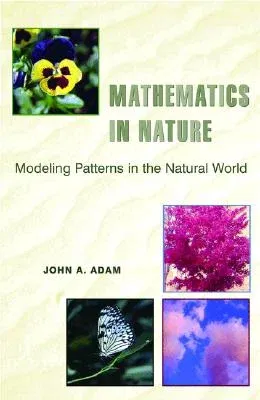From rainbows, river meanders, and shadows to spider webs, honeycombs,
and the markings on animal coats, the visible world is full of patterns
that can be described mathematically. Examining such readily observable
phenomena, this book introduces readers to the beauty of nature as
revealed by mathematics and the beauty of mathematics as revealed in
nature.
Generously illustrated, written in an informal style, and replete with
examples from everyday life, Mathematics in Nature is an excellent and
undaunting introduction to the ideas and methods of mathematical
modeling. It illustrates how mathematics can be used to formulate and
solve puzzles observed in nature and to interpret the solutions. In the
process, it teaches such topics as the art of estimation and the effects
of scale, particularly what happens as things get bigger. Readers will
develop an understanding of the symbiosis that exists between basic
scientific principles and their mathematical expressions as well as a
deeper appreciation for such natural phenomena as cloud formations,
halos and glories, tree heights and leaf patterns, butterfly and moth
wings, and even puddles and mud cracks.
Developed out of a university course, this book makes an ideal
supplemental text for courses in applied mathematics and mathematical
modeling. It will also appeal to mathematics educators and enthusiasts
at all levels, and is designed so that it can be dipped into at leisure.

